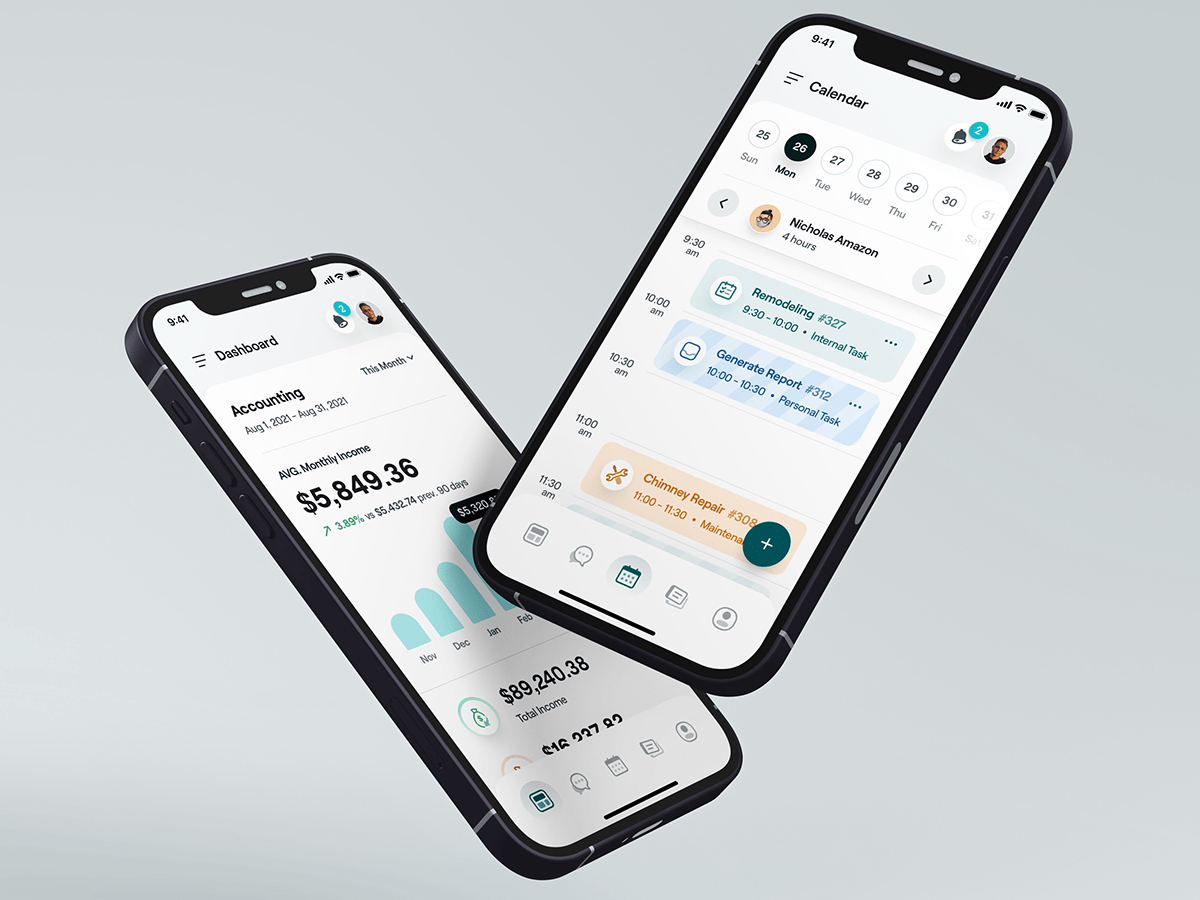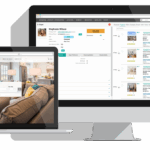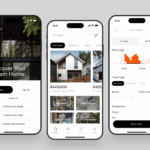Software to manage mobile home real estate portfolios is revolutionizing the way property owners handle their investments. This innovative technology provides essential tools that simplify management tasks, enhance efficiency, and ultimately boost profitability. With the complexities of mobile home management on the rise, utilizing the right software becomes crucial for both new and seasoned investors.
In this era of digital transformation, property management software offers features such as tenant communication tools, financial reporting, and user-friendly interfaces that cater specifically to mobile home portfolios. As we delve deeper, we will explore the key benefits, implementation processes, and even the latest trends shaping the future of mobile home management software.
Overview of Software for Mobile Home Real Estate Management
Managing mobile home real estate portfolios presents unique challenges, including the need for efficient tracking of property status, tenant management, maintenance scheduling, and financial oversight. The adoption of specialized software solutions has become increasingly important to streamline operations, enhance productivity, and ensure compliance with regulations in this niche market.A robust software solution for mobile home management should encompass a variety of features tailored to meet the needs of portfolio managers and property owners.
These features should facilitate the daily operations of managing mobile homes, thereby improving overall efficiency and tenant satisfaction.
Essential Features of Mobile Home Management Software
The following features are critical for effective mobile home portfolio management software, ensuring comprehensive oversight and management capabilities:
- Tenant Management: Efficient tracking of tenant information, lease agreements, and communication history is essential for maintaining positive landlord-tenant relationships.
- Maintenance Tracking: Automated scheduling and tracking of maintenance requests allow for timely responses to tenant needs, thereby enhancing tenant retention.
- Financial Management: Features that automate invoicing, payment processing, and financial reporting assist in maintaining financial health and transparency within the portfolio.
- Reporting and Analytics: Comprehensive reporting tools that analyze occupancy rates, revenue generation, and expense tracking can provide valuable insights into portfolio performance.
- Compliance Management: Keeping track of local regulations and ensuring compliance is crucial to avoid legal issues and maintain the integrity of the portfolio.
Popular Software Options in the Market
Numerous software solutions are available that cater specifically to mobile home real estate management. Several notable options include:
- AppFolio: A comprehensive property management solution that includes tenant and lease tracking, online payments, and maintenance management.
- Buildium: This platform offers an array of features including tenant screening, online rent collection, and detailed financial reporting, making it suitable for property managers of all sizes.
- TenantCloud: This software provides user-friendly tools for property management, including accounting, maintenance requests, and tenant screening, ideal for small to mid-sized portfolios.
- Propertyware: Tailored for the needs of property managers, this software offers customizable workflows, maintenance management, and reporting features.
- Rentec Direct: Known for its robust accounting features, this software also includes tenant management, online payments, and marketing tools for attracting new tenants.
Through the utilization of these software solutions, mobile home real estate managers can enhance their operational efficiency, improve tenant experiences, and maintain a profitable portfolio in an increasingly competitive market.
Key Features of Effective Management Software
Effective management software for mobile home real estate portfolios is crucial in optimizing operational efficiency and enhancing decision-making processes. The integration of specific features can significantly streamline property management tasks, resulting in improved productivity and profitability.The essential attributes of a robust management software include functionality for tracking tenant information, financial management, maintenance requests, and comprehensive reporting capabilities. These features not only facilitate the organization of data but also empower real estate managers to make informed, data-driven decisions.
Essential Features that Enhance Property Management Efficiency
The effectiveness of management software is greatly influenced by its core features, which streamline various aspects of property management. Understanding these features helps in selecting software that meets specific operational needs.
- Tenant and Lease Tracking: This feature enables property managers to maintain detailed records of tenant information, lease terms, and renewal dates, which enhances tenant retention and simplifies lease management.
- Financial Management Tools: Software that includes integrated accounting features allows for tracking rent payments, generating invoices, and managing expenses, thereby providing a holistic view of the financial health of the portfolio.
- Maintenance Management: A system for logging maintenance requests and tracking their status ensures that issues are addressed promptly, leading to increased tenant satisfaction and reduced vacancy rates.
- Communication Tools: Built-in communication features enable seamless interaction between property managers and tenants, fostering a positive relationship and enhancing service delivery.
Benefits of Reporting Tools in Mobile Home Portfolio Management
Reporting tools are indispensable in property management software, providing managers with the ability to analyze data and generate insights for strategic decision-making. These tools facilitate comprehensive reporting on various aspects of the portfolio.
- Financial Reports: Regular financial reporting offers insights into income, expenses, and profitability, enabling managers to make timely adjustments to optimize financial performance.
- Occupancy and Vacancy Reports: Tracking occupancy rates helps identify trends and informs marketing strategies to attract new tenants, minimizing revenue loss due to vacancies.
- Maintenance Performance Reports: Analyzing maintenance request completion times can highlight operational efficiencies or deficiencies, guiding managers toward improvements in service delivery.
- Tenant Satisfaction Surveys: Reports based on tenant feedback can assist in understanding tenant needs and improving services, ultimately leading to better retention rates.
Significance of User-Friendly Interfaces in Software Usability
User-friendly interfaces in management software are paramount for ensuring ease of use and quick adoption among users. A well-designed interface contributes to overall software effectiveness.
- Intuitive Navigation: An intuitive layout allows users to easily access features without extensive training, reducing the learning curve and increasing productivity from the outset.
- Customization Options: Interfaces that allow customization enable users to tailor their experience to align with their specific workflows and preferences, enhancing efficiency.
- Mobile Compatibility: With the rise of mobile technology, software that provides a responsive design ensures users can manage properties effectively from various devices, increasing accessibility.
- Visual Dashboards: Dashboards that display key performance indicators (KPIs) in a visually appealing manner facilitate quick analysis and decision-making, ensuring that critical information is readily available.
Benefits of Using Management Software
Management software for mobile home real estate portfolios provides a substantial array of advantages that enhance operational efficiency and tenant relations. The digital transformation of property management not only streamlines processes but also elevates the overall experience for both property managers and tenants. Effective software solutions can facilitate the management of numerous properties, ensuring that all aspects of operations are addressed seamlessly.The implementation of management software leads to significant improvements in communication and tenant satisfaction.
By adopting such technology, property managers can maintain consistent and clear communication with tenants, which plays a crucial role in enhancing their overall experience. A well-integrated software system can automate communication processes and ensure that tenants receive timely updates regarding maintenance, rent reminders, and community events.
Improved Tenant Communication and Satisfaction
Effective management software enhances tenant engagement through various features that foster communication. The following points illustrate how these capabilities improve tenant relationships:
- Automated Notifications: Software solutions can send automated reminders for rent payments and maintenance schedules, ensuring that tenants are informed and reducing late payments.
- Maintenance Requests: Tenants can submit maintenance requests through user-friendly portals, which can be tracked and managed efficiently, leading to faster resolution times.
- Community Engagement: Platforms may offer community boards or newsletters that keep tenants informed about events and updates, fostering a sense of community.
- Feedback Mechanisms: Integrated surveys and feedback channels allow tenants to express their opinions and suggestions, making them feel valued and heard.
The enhancements in communication foster a positive living environment, which is critical for tenant retention and satisfaction.
Cost Savings through Efficient Portfolio Management
The deployment of management software can lead to significant cost savings for mobile home real estate managers. By streamlining operations and improving efficiency, property owners can allocate resources more effectively. Key cost-saving elements include:
- Resource Optimization: Automated processes reduce the need for manual intervention, freeing up staff to focus on more strategic tasks.
- Reduced Operational Costs: Centralized data management minimizes errors and redundancies, which can translate into lower operational costs.
- Enhanced Decision-Making: Real-time data analytics provide insights into portfolio performance, enabling informed decisions that can lead to better investment outcomes.
- Energy Management: Some systems include tools for monitoring energy usage, helping to identify areas for improvement and ultimately lowering utility costs.
In conclusion, the integration of management software into mobile home real estate portfolios presents numerous benefits that significantly improve operational efficiency, enhance tenant communication, and realize cost savings.
Implementation Process of Management Software
The implementation of management software for mobile home real estate portfolios involves a structured approach to ensure a seamless transition and effective utilization. Effective implementation is crucial as it lays the foundation for the software to deliver its intended benefits, improve operational efficiency, and enhance decision-making processes. This section will explore the steps involved in selecting the appropriate software, provide a checklist for the implementation phase, and discuss potential challenges along with strategies for overcoming them.
Steps for Selecting the Right Software
Selecting the appropriate management software requires a comprehensive evaluation process. The following steps provide a structured approach to ensure that the chosen software aligns with organizational needs:
- Define Objectives: Identify specific goals for the software, such as improving tenant management or streamlining maintenance requests.
- Conduct Market Research: Investigate available software options, focusing on features tailored to mobile home management.
- Request Demonstrations: Arrange for product demonstrations to observe functionalities and user interfaces of shortlisted options.
- Evaluate User Feedback: Review testimonials and case studies from existing users to gauge satisfaction and effectiveness.
- Assess Technical Requirements: Ensure compatibility with existing systems and confirm the infrastructure needed for implementation.
- Determine Budget: Establish a budget that includes licensing, training, and ongoing support costs.
- Engage Stakeholders: Involve team members and decision-makers in the selection process to gather diverse input.
Implementation Phase Checklist
The implementation of new management software involves various stages, each critical to achieving successful adoption. The following checklist Artikels key tasks to be completed during this phase:
Successful implementation requires attention to detail across various phases of integration.
- Finalize Software Selection: Confirm the choice of software based on evaluations and stakeholder feedback.
- Develop an Implementation Plan: Create a detailed plan outlining timelines, responsibilities, and key milestones.
- Conduct Data Migration: Transfer existing data into the new system, ensuring accuracy and integrity.
- Customize Software: Tailor the software settings to meet specific management needs and preferences.
- Train Users: Organize training sessions for all users to familiarize them with the new system and its functionalities.
- Establish Support Resources: Provide ongoing support for users, including access to help desks and user manuals.
- Monitor and Evaluate: Post-implementation, continuously assess the software’s performance and seek user feedback for improvements.
Challenges and Solutions During Implementation
The implementation of management software can present several challenges that may hinder its success. Recognizing these challenges and preparing solutions is vital for a smooth transition:
Anticipating challenges can significantly mitigate risks associated with software implementation.
- Resistance to Change: Users may be resistant to adopting new technology. This can be addressed by emphasizing the benefits of the software and involving users in the decision-making process.
- Data Migration Issues: Inaccuracies or loss of data may occur during migration. To combat this, conduct thorough data audits prior to migration and utilize data verification tools.
- Inadequate Training: Insufficient training can lead to user frustration and decreased productivity. Comprehensive training programs tailored to different user roles should be implemented.
- Integration Challenges: Difficulties may arise when integrating the software with existing systems. Engaging IT professionals with experience in integration can help alleviate these issues.
- Lack of Support: Users might feel abandoned post-implementation, leading to reduced usage. Establishing a dedicated support team is essential to assist users with ongoing questions and technical issues.
Comparison of Leading Software Solutions
In the realm of mobile home real estate management, selecting the right software solution is pivotal for effective portfolio management. A comparative analysis of leading software options aids stakeholders in making informed decisions based on functionality, user experience, and cost-efficiency. This section provides a detailed examination of notable software solutions designed to facilitate mobile home real estate management.
Comparative Analysis of Software Solutions
A thorough comparison of the top software solutions highlights their unique features and pricing structures, assisting potential users in identifying the best fit for their requirements. The following table Artikels key features and pricing information for several leading software options in the mobile home real estate management sector.
| Software Solution | Key Features | Pricing |
|---|---|---|
| TenantCloud |
|
Starting at $12/month |
| AppFolio |
|
Starting at $1.25/unit/month |
| Buildium |
|
Starting at $50/month |
| Rentec Direct |
|
Starting at $35/month |
The pros and cons of each software solution provide additional insights for decision-making:
Understanding the strengths and weaknesses of each software can significantly impact the management efficiency and overall satisfaction of users.
Pros and Cons of Each Software Solution
The following list summarizes the advantages and disadvantages of the aforementioned software solutions: – TenantCloud
Pros
Affordable pricing for small landlords
User-friendly interface for easy navigation
Cons
Limited advanced reporting features
- Customer support may be slower during peak times
- AppFolio
Pros
Comprehensive marketing tools to attract tenants
Strong mobile capabilities for on-the-go management
Cons
Higher cost for larger portfolios
- Learning curve for new users due to extensive features
- Buildium
Pros
Robust accounting functionalities
Excellent tenant communication features
Cons
Pricing may be prohibitive for small operations
- Some users report lag in the mobile application
- Rentec Direct
Pros
Strong reporting and analytics capabilities
Customizable features according to user needs
Cons
Interface may appear outdated compared to competitors
Steeper learning curve for new users
This comparative analysis serves as a guide for stakeholders in selecting a software solution that aligns with their operational needs and budgetary constraints.
Case Studies
The application of management software in mobile home real estate has led to significant operational improvements and increased profitability for various companies. This section will examine specific cases where management software has been effectively implemented, highlighting the measurable impacts on efficiency and financial outcomes, as well as the key lessons derived from these experiences.
Case Study: ABC Mobile Homes
ABC Mobile Homes implemented a comprehensive property management software solution to address challenges related to tenant management and maintenance requests. Prior to this implementation, the company faced difficulties in tracking rental payments and handling maintenance inquiries, which resulted in delayed responses and tenant dissatisfaction.The introduction of the software streamlined these processes, allowing for real-time tracking of payments and automated reminders for upcoming dues.
As a result, ABC Mobile Homes reported a 30% reduction in late payments and an increase in tenant retention rates. Moreover, the software provided insights into maintenance trends, enabling proactive management of repair needs. The following key outcomes were observed:
- Improvement in cash flow due to timely rent collections.
- Increased tenant satisfaction led to a 15% rise in renewals.
- Reduction in maintenance response times by 40%.
“By utilizing management software, we transformed our operational challenges into opportunities for growth.”
CEO, ABC Mobile Homes
Case Study: XYZ Realty Group
XYZ Realty Group focused on enhancing its portfolio management capabilities through the adoption of advanced software specifically designed for mobile home parks. The company aimed to centralize data, improve communication between staff and tenants, and leverage analytics for better decision-making.With the new software, XYZ Realty Group was able to consolidate all property information into a single platform. This integration facilitated efficient communication and improved operational transparency.
The results of this initiative included:
- Reduction in administrative overhead costs by 25%.
- Increased analytical capabilities leading to more informed investment decisions.
- Enhanced marketing efforts resulting in a 20% increase in new tenant applications.
“The ability to analyze data quickly and efficiently has been a game changer for our business model.”
COO, XYZ Realty Group
Lessons Learned from Implementation
The experiences of ABC Mobile Homes and XYZ Realty Group provide valuable insights for other companies considering the adoption of management software. The following lessons are particularly noteworthy:
- Investing time in training staff is essential to maximize the software’s potential.
- Regularly updating software features can enhance performance and security.
- Utilizing the data analytics capabilities can inform strategic decisions and improve overall business performance.
Future Trends in Mobile Home Management Software: Software To Manage Mobile Home Real Estate Portfolios

The landscape of mobile home management software is on the cusp of significant transformation, driven by advances in technology and shifts in market demands. Emerging technologies are poised to enhance operational efficiency and user experience in managing mobile home portfolios. As the industry evolves, it is essential to understand the potential future trends that may reshape mobile home management.Artificial intelligence (AI) is becoming increasingly integral to property management software, providing innovative solutions to streamline processes and enhance decision-making capabilities.
Machine learning algorithms can analyze vast amounts of data, identifying patterns that may not be readily visible to human managers. Additionally, AI can automate routine tasks, such as maintenance requests and tenant communications, allowing property managers to focus on strategic initiatives.
Impact of Artificial Intelligence on Property Management Software, Software to manage mobile home real estate portfolios
The integration of artificial intelligence in mobile home management software can significantly improve operational workflows. Key implications of AI in this context include:
- Automation of Administrative Tasks: AI can handle various administrative tasks, such as tenant screening, lease management, and payment processing, reducing the workload on property managers.
- Predictive Maintenance: AI-driven predictive analytics can forecast maintenance needs based on historical data, helping to prevent costly repairs and extending the lifespan of assets.
- Enhanced Tenant Engagement: Chatbots powered by AI can provide real-time support to tenants, addressing inquiries and facilitating communication 24/7.
- Data-Driven Insights: AI algorithms can analyze tenant behavior and market trends, offering actionable insights that support better decision-making regarding pricing and property improvements.
Data Analytics Enhancing Decision-Making in Mobile Home Portfolios
The use of data analytics is critical in making informed decisions regarding mobile home investments and management. By harnessing data analytics, property managers can gain deeper insights into market trends, tenant preferences, and operational efficiencies.
- Market Analysis: Advanced data analytics tools can evaluate local real estate trends, demographic shifts, and economic indicators, guiding investment strategies and pricing models.
- Operational Efficiency: Analyzing operational data allows property managers to identify inefficiencies in processes, optimizing resource allocation and reducing operational costs.
- Tenant Satisfaction: Data analytics can track tenant feedback and engagement metrics, enabling property managers to implement improvements that enhance tenant satisfaction and retention.
- Performance Metrics: Key performance indicators (KPIs) can be monitored through data analytics, facilitating a better understanding of portfolio performance and identifying areas for improvement.
In conclusion, the convergence of AI and data analytics in mobile home management software signifies a trend towards more efficient, data-driven management practices. These technologies not only automate routine tasks but also empower property managers to make strategic decisions grounded in robust data analysis, thereby enhancing the overall management of mobile home portfolios.
Last Point
In conclusion, the landscape of mobile home real estate management is evolving rapidly, and software solutions are at the forefront of this change. By adopting effective management software, investors can streamline operations, improve tenant satisfaction, and drive overall success in their portfolios. As we look ahead, staying informed about emerging technologies will be vital for maximizing the potential of mobile home investments.




